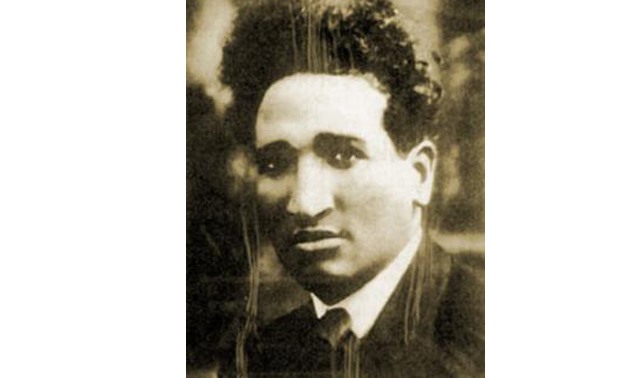
Sayed Darwish-Wikimedia
CAIRO - 17 September 2017: The Arab Heritage Music Ensemble will perform a concert at the Arab Institution Music Theatre to honour the late great singer and musician Sayed Darwish on the occasion of his 94th death anniversary on Sunday at 8 p.m.
Born in 1892, the ambitious singer was raised among seven children and used to work as a bricklayer to provide for his family. He was discovered by a manager of a theatrical troupe who overheard him singing while working and decided to hire him.
Dying at the dawn of his striking career at the age of 31, Darwish pursued his career amid touring in Syria where he embarked on his musical education. He later returned to Egypt where he was rarely recognized as he sang in coffee shops before World War I.
Despite his limited recognition at the time, Darwish was given the opportunity to collaborate with significant composers of that century after being trained to be a “Munshid” (cantor).
The Alexandrian singer/composer is well known in modern Arab music historiography for symbolizing progress, modernity, and the transfer from Oriental music that was made for the elite class at the time, and from Ottoman music to Egyptian music, according to an article published by Al-Mashriq.
Darwish was haunted by several failures in his early singing career; however 1918 has been earmarked as a turning point where he was inspired by the renowned Arabic lyricist Salama Higazy.
Known as an experimental artist, Darwish has also been recognized as a long living icon of nationalism, composing the famous Egyptian national anthem “Biladi Biladi,” and the revolutionary “Oom Ya Masry” (Get up, Egyptian) that played a great role in the revolution of 1919.
The composer’s first hit song, “The Beautiful One,” was released in 1912. Darwish is also known for singing and composing “Salma ya Salama” that has been recreated in various covers including a cover by the late singer Dalida. Other compositions include; “El Helwa di Kamet Te’gen” that was also recreated into a new cover sung by the Lebanese singer Fayrouz and was reproduced in orchestral versions.
Darwish also met with cinema legend Naguib al-Rihani in Cairo where they both worked together to compose seven operettas alongside comedian Kish Kish Bey. The trio has conducted works such as “Al-Ashara Al-Tayeba" (Ten of Diamonds) in 1920 which is a patriotic adaptation of “Blubeard.”
They also conducted an opera called “Cleopatra and Mark Anthony” where the singing/ acting legend Mohamed Abdel Wahab starred in the leading role. Darwish also composed “Shahrazad” and “Al-Baruka,” which was not met with widespread success.
The late artist's theatre productions were often westernized as the traditional Arabic Takht was replaced by a European ensemble and conducted by Il Signore Casio, who was Darwish’s maestro. Darwish’s operetta tunes are famous for combining musical modes with pianos that reveal his fascination for Italian opera.

Comments
Leave a Comment